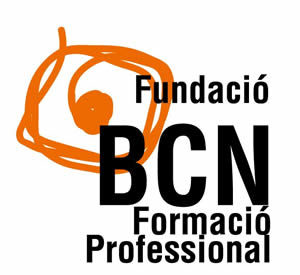Other institutions such as the Port of Barcelona, the Public Agency for Vocational Training and Qualification of Catalonia, CCOO, Barcelona Activa, professional associations and vocational training centres also participate in this group.
News
We participate in the VET offer planning group
The BCN Vocational Training Foundation has participated in the working group on the planning of the VET offer organized by the VET Council of Barcelona, exposing the results, conclusions and recommendations included in the latest edition of the Anuari report on VET and the labour market. In addition, a debate has been held on the main challenges of VET and how to address them.

Fourth edition of the FPCAT Awards
On April 27, at the headquarters of the Palau de Pedralbes in Barcelona, the FPCAT Awards were awarded to the good practices promoted in the field of vocational training. The Awards, which have already reached their 4th edition, include the following categories:
a) Individual trajectories: recognition of the actions carried out by individuals in the exercise of their professions.
b) Careers in training centres: recognition of notable experiences carried out by centres that provide initial or occupational vocational training.
c) Companies and other entities: recognition of significant contributions to the construction of quality vocational training carried out by public and private entities.
d) Award for research in the field of vocational training.
e) Good practices in the individual trajectory of the user of vocational training centers.

Presentation of the study “Dual Training in Spain: situation and prespective”
On April 25, at the headquarters of the “Ministerio de Educación y Formación Profesional”, the study promoted by the “Consejo Económico y Social de Espa’a” (Economic and Social Council of Spain) was presented: “La Formación Dual en Espa’a, situación y prespectivas”.
The report highlights the contribution that a wide development of dual training can make to contribute to a lasting, sustainable and inclusive economic recovery, generating more jobs and higher quality.
Report document: https://www.ces.es/documents/10180/5306984/Inf0123.pdf
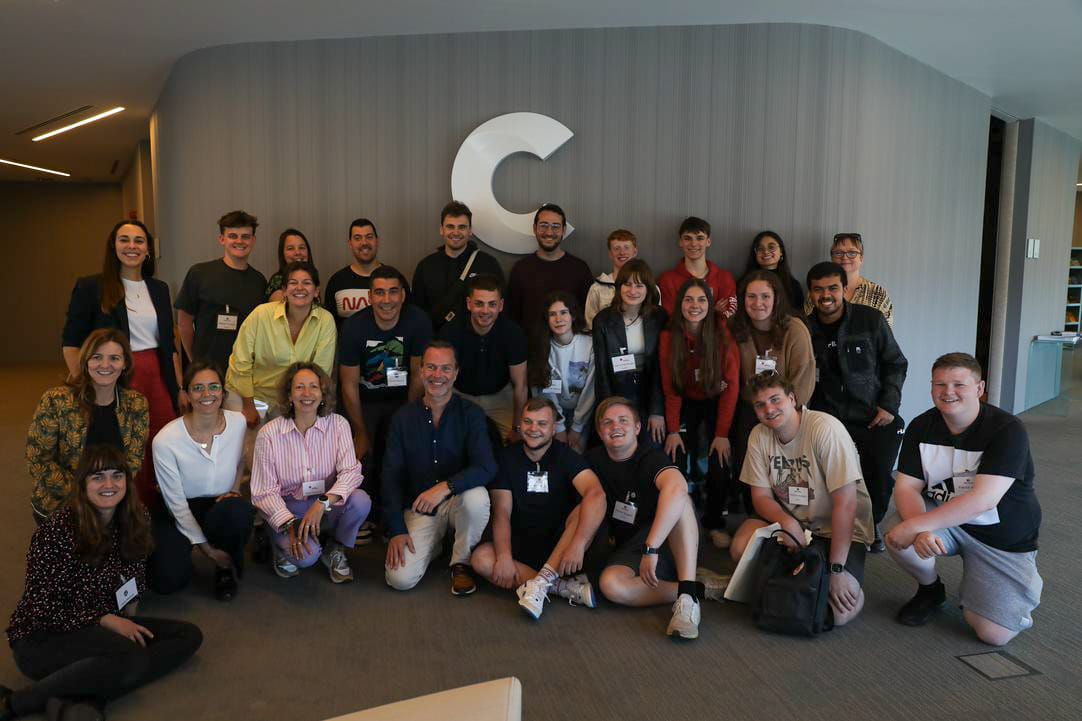
As a starting point for our new European project: EU Water Challenge VET Labs
The BCN Vocational Training Foundation has organized a conference to present its new pedagogical and innovative project based on the exchange of knowledge on innovative solutions in the field of sustainability.
This project called “EU Water Challenge VET Labs” aims to involve European VET learners and trainers to identify nature-based innovative solutions to mitigate the consequences and effects of flooding and improve water retention within an imaginary European city, called ‘Metropoli’. Both learners and trainers will participate in the first international VET awards to respond to this key social challenge in the water management sector.
The company that launches the challenge is Agbar, part of the international Veolia group, committed to ecological transformation. The city ‘Metropoli’ is invented and developed by Agbar and includes a series of combined functions from a typical city of Denmark, Belgium and Spain to emulate different environmental contexts (those from the different participating centers) in a unique city.
Therefore, participating VET students will have to be creative to solve a real-world need by applying the challenge-based learning approach (Challenge Based Learning) and other open innovation methodologies applied to VET, while acquiring deeper knowledge and skills needed to thrive in a changing world.
The event was attended by leading experts from the sector and brought together representatives of companies and entities involved in the sector.
Among the speakers were Lluc Pejó, director of the Water School and talent director of Agbar and responsible for launching the challenge of the project, Mrs. Anna Hern’ndez, head of the Social and Economic Development Area of the Barcelona Metropolitan Area. In addition, Sol Bermejo, coordinator of the project for the BCN Vocational Training Foundation, presented the EU Water Challenge VET Labs, and Gemma Sepúlveda, coordinator of the Foundation’s innovation project, also presented the MetropolisFPLab, a project that has served as an inspiration to scale up a pedagogical VET project based on challenge-based learning at the European level.
During the presentation of the challenge, experts in urban drainage solutions have shared their knowledge and experiences, including the explanation of what are “natural-based solutions” by Angel Villanueva, director of resilience and climate change at Agbar. The city ‘Metròpoli’ was also presented by Montse Lloch, Head of Communication of the Agbar Water School, explaining to the participants what were the basic requirements with which the fictional city created by the participants would need to count.
The Challenge-Based Learning (ABR) methodology, an innovative pedagogical element provided by the project and the virtual platform, have also been presented by Joan Ras, from SDLI. The session closed with a group dynamic to promote teamwork among students by Júlia Zivic and Gemma Sepúlveda, from the Barcelona Vocational Training Foundation.
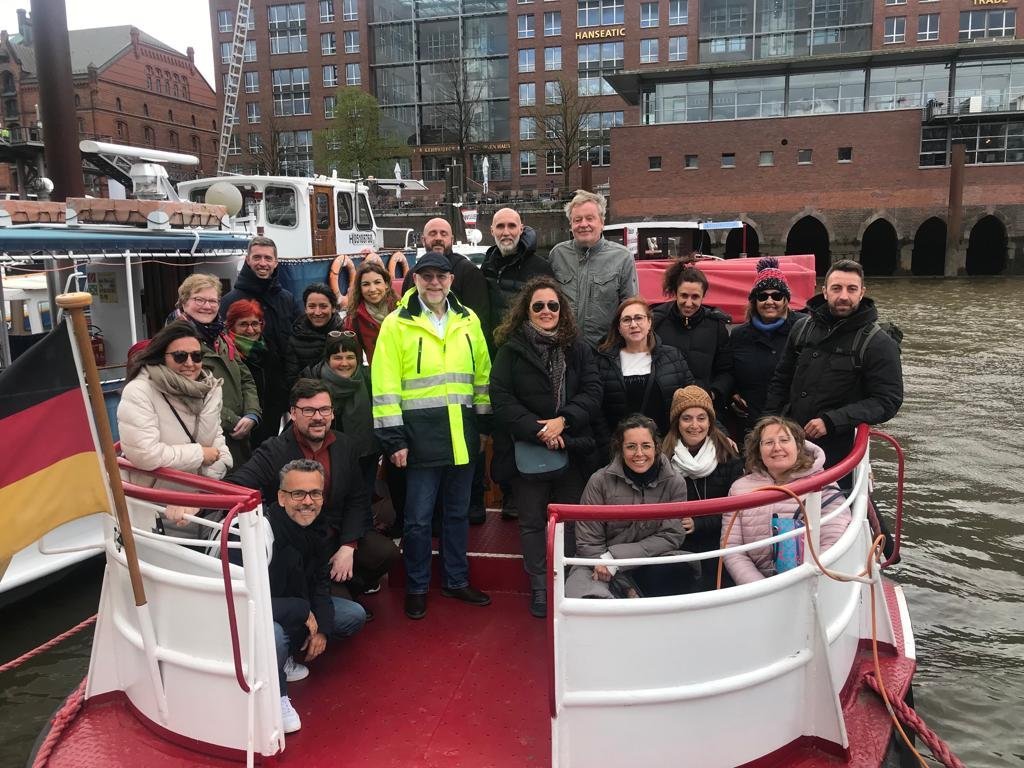
Mobility of teachers and educational professionals in the field of logistics in Hamburg
This week, a delegation of teachers and different institutions are doing a training stay in the cities of Hamburg and Hanover in order to know the German vocational training system in general and, specifically, the dual vocational training system in the field of logistics and international trade.
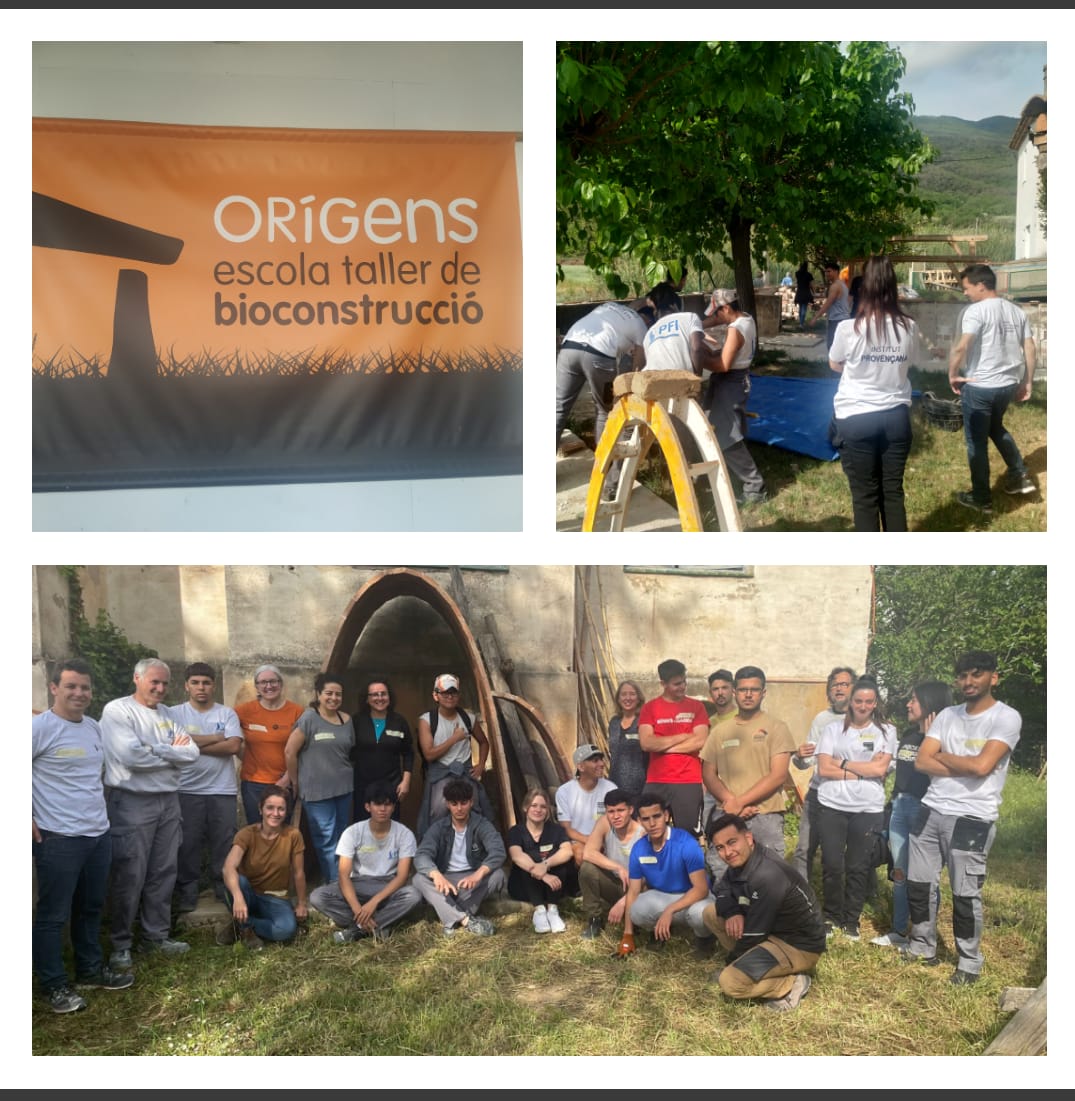
Workshop on Bioconstruction and Circular Economy
One of the lines of work of the Table FP & Construction 4.0, promoted by the Foundation, is training to face the future challenges of the sector.
With the aim of raising awareness and training future sustainable construction professionals, we have organized a Workshop on Bioconstruction and Circular Economy (7h) for 20 VET students, the Building and Civil Works family, the centers of Barcelona (Institut Escola del Treball) and the AMB (Institut Provençana) of L’Hospitalet de Llobregat. The training activity will be carried out at the School-Bioconstruction Workshop ORIGINS of the Hostoles Plans (Girona). It is an eminently practical training, focused on achieving the realization of several constructive elements with clay and vegetable fibres. We will work with natural materials and low environmental impact, to promote the reduction of the ecological footprint and make use of local or local materials.

MetropolisFPLab
The MetropolisFPLab continues to advance, and now only those teams with the best proposals follow the project. The different companies that launch a challenge have chosen the 3 or 4 most viable proposals to follow the project, and in order to finish promoting them we have carried out the accelerator workshop: a day of innovation and rethinking the prototype with acceleration techniques and personalized support of the company. Next week we will meet the finalists!
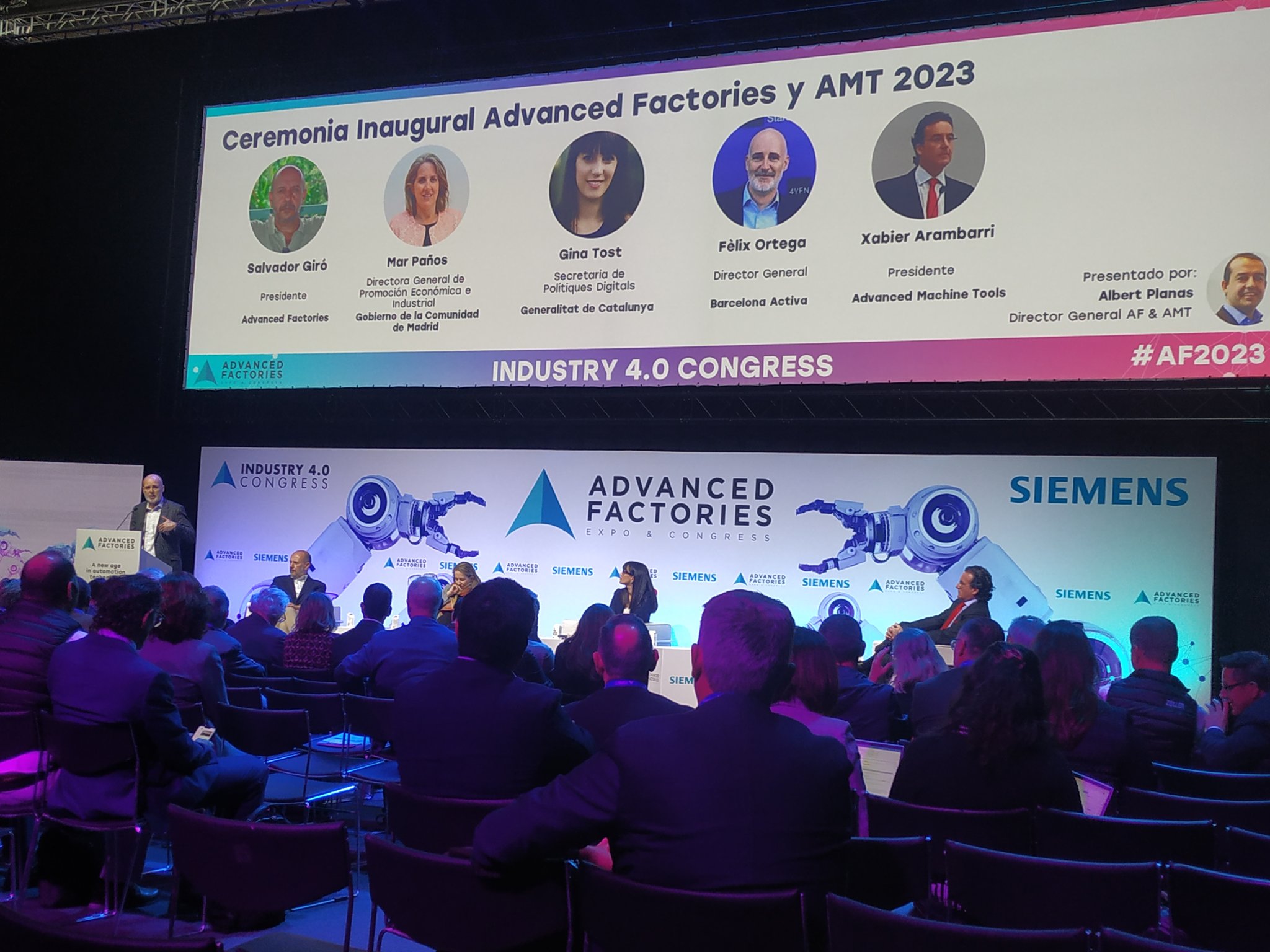
Advanced Factories 2023
From 18 to 20 April 2023 the Foundation collaborated in the 7th edition of Advanced Factories and the 1st Advanced Machine Tools at Fira Gran Via- Barcelona, a benchmark event for the automation, robotics and industry 4.0 sector.
On April 20, 2023, we presented the Factories of the Future awards to innovative FP 2023 projects at Talent Marketplace.
The winning centers 2023 have been:
· Institut Bernat El Ferrer de Molins de Rei
· Manolo Hugué Institut of Caldes de Montbui
· Institut of Vic
These awards are a recognition to VET centers that are innovating to adapt to industry 4.0 trends, offering training proposals for future professionals and responding to the challenges of the digital economy.
The awards were given by Fabi’n Mohedano, executive president of the Public Agency for Vocational Training and Qualification of Catalonia.
Meeting Training and Employment Table in Logistics
On April 17, at the headquarters of BCL-Barcelona Logistics Centre, the Logistic Training and Employment Table was held, coordinated by the AMB. In the session it was recalled that the Table was born as a metropolitan response to the concern of the training and employment agents in the sector to meet the talent needs of the logistics sector. Work has been done in three areas: communication, prospective and sectoral and territorial projects to promote VET in logistics.
The Table is attended by some 20 agents who work in coordination with the aim of promoting projects that improve the linkage of the sector.





